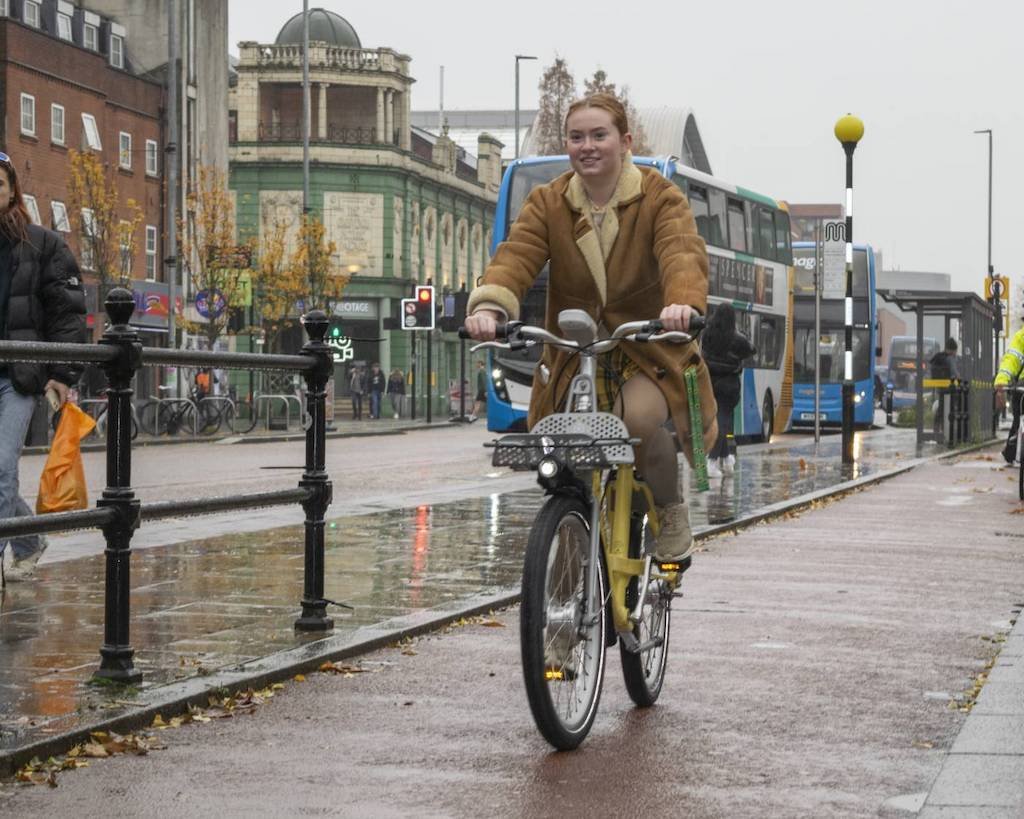Greater Manchester makes infrastructure and behaviour change central to active travel plan
Greater Manchester’s Active Travel Commissioner, Dame Sarah Storey, has unveiled a refreshed active travel mission for the city region focusing on accessibility, behaviour change and clear communications.
The updated policy sets out Dame Sarah’s priorities and approach to active travel in Greater Manchester to ensure the benefits of walking, wheeling and cycling are unlocked for all residents and communities.
Active travel is central to the future of transport in the city-region and a key component in the delivery of a fully-integrated transport system, the Bee Network.
The new policy seeks to build on the foundations of Greater Manchester’s existing active travel system – which has so far seen at least 92km of routes adopted into the Bee Network by May 2022 and the successful roll-out of the first phase of the Greater Manchster cycle hire scheme.
The new policy, Refreshing Greater Manchester’s Active Travel Mission, highlights the benefits of active travel and why it is fundamental to the success of other key agendas for Greater Manchester, including improved health, decarbonisation, educational attainment and the economy.
Five key priorities underpin Dame Sarah’s refreshed active mission and will all drive the work and focus of the policy in the coming years.
These priorities include:
Infrastructure delivery
Home to school travel
Cycle hire and access to cycling
Integration with public transport
road danger reduction
Dame Sarah Storey, Active Travel Commissioner, said, “Providing people with the opportunity to walk, wheel or cycle is fundamental to helping us move around Greater Manchester in different ways, particularly for short trips or giving barrier free access to public transport stops.
“But the benefits of active travel go beyond simply getting from one place to another. Research has shown how it can dramatically improve people’s health and wellbeing over time, and prevent thousands of long-term health conditions in this city-region alone.”
Current levels of active travel in Greater Manchester are estimated to prevent at least 2,600 serious, long-term health conditions. Walking is reported to help prevent at least 425 early deaths annually and cycling more than 50. Not only is active travel reducing early deaths, it is saving the local NHS around £4 million a year.
Cllr Paul Prescott, cabinet member for planning, environment and transport at Wigan Council, said, “Improving active travel infrastructure and accessibility has the power to reduce traffic congestion and improve air quality for communities in Wigan and beyond.”

